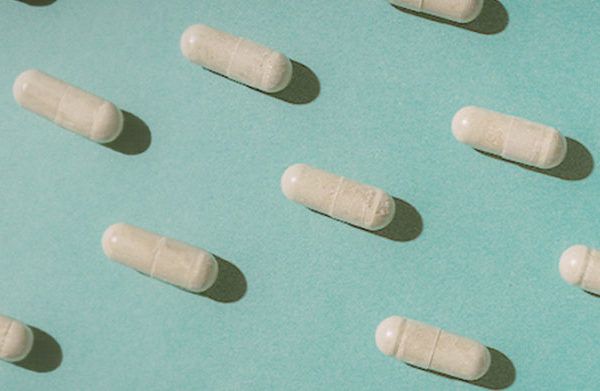
SHA Magazine Healthy Nutrition
The vitamin D paradox
Spain is a Mediterranean country with over 2,500 hours of sunshine per year. It is a destination known for its sunshine. 90% of the vitamin D we store in our bodies is synthesised through exposure to the sun. However, according to data of the Spanish Society of Family and Community Medicine, in Spain, 75% of the population (the figure rises to 80% in the young population) lives with vitamin D deficiency or with levels far below those of citizens in northern European countries with far fewer annual hours of sunshine.
Theoretically, in Spain, exposing the face and arms to the sun for 5-15 minutes a day during the central hours of the day (and only between March and October) would be sufficient to maintain adequate vitamin D levels. Other countries in the Mediterranean basin such as Italy and Greece are similarly vitamin D deficient. This is a great mystery.
Investigators point to several causes. One of them is that, unlike in the Nordic countries, in the Mediterranean we do not rush to expose ourselves to the sun. In fact, we take shelter at home during the central hours of the day and cross over to the pavement in the shade. What’s more, we use a lot more sunscreen, which is beneficial for some things, but block the absorption of vitamin D.
Diet, although not the primary source of vitamin D, does not help either. We do not eat enough oily fish and vitamin D fortified foods, nor are there campaigns to raise awareness of the need for supplementation, as is the case in the Nordic countries.
In Spain, it is believed that only half of the population takes vitamin D supplements and vitamin D testing is only recommended for at-risk groups such as the elderly, people with malnutrition, or people with frequent bone fractures.
“Fatigue, muscle and bone pain, and a feeling of weakness may be a sign of vitamin D deficiency,” explains Dr Rosario García, head of the Revitalising Medicine unit at SHA Wellness Clinic Spain. Blood tests and sometimes X-rays are used to confirm the diagnosis.
Oral or injectable vitamin D supplementation usually achieves complete remission of the deficiency. The two forms of vitamin D important for nutrition are vitamin D2 (ergocalciferol), which is synthesised from plants and yeast precursors, and used in supplements containing very high doses; and vitamin D3 (cholecalciferol), which is the more active form. It forms on the skin when exposed to direct sunlight, and is present in fortified food sources, especially cereals and dairy products. Vitamin D is also present in fish liver oils, fatty fish, egg yolks and liver.
Vitamin D and the immune system
This vitamin stimulates the adaptive immune system and increases the number of Th2 lymphocytes, which explains its anti-inflammatory effect. Vitamin D is known to be involved in immunity mechanisms that eliminate pathogens.
A study conducted at the Severo Ochoa Hospital in Leganés (Madrid) measured the immuno-modulatory and anti-inflammatory effects of vitamin D in patients with COVID 19. Patients were supplemented with 10,000 units of vitamin D3 daily for 14 days, and were observed to have increased blood lymphocyte levels and better control of the inflammatory response. In addition, a significant increase in some immune cells was observed, which could facilitate the elimination of the virus from the body.
“The body’s need for vitamin D increases with age. This vitamin, like A, E and K, is fat-soluble, so it is better absorbed when ingested with a little fat,” says Dr García.
When vitamin D deficiency occurs, the body absorbs less calcium and less phosphate. Because these minerals help keep bones healthy, vitamin D deficiency leads to a bone disorder called rickets in children and osteomalacia in adults. In osteomalacia, the body does not incorporate enough calcium and other minerals into the bones, which makes the bones weak. In pregnant women, vitamin D deficiency causes the same deficiency in the foetus, so the newborn will have a high risk of developing rickets. Sometimes the deficiency is severe enough to lead to osteomalacia in women.
Vitamin D deficiency also causes osteoporosis to worsen in post menopausal women by reducing calcium levels in the blood. In an attempt to compensate for low calcium levels, the body produces more parathyroid hormone, which takes calcium out of the bones and puts it into the blood, causing more bone problems.
“Prolonged vitamin D and calcium deficiency causes bones to become brittle and fracture more easily. Muscles, which are also important for bone health because they help maintain balance and prevent falls, can be weakened by vitamin D deficiency,” explains Dr García, who points out that consuming the recommended amounts of vitamin D and calcium through food (and supplements, if needed) helps maintain healthy bones and prevent osteoporosis. Vitamin D and calcium supplements slightly increase bone strength in older adults and are being studied to see if they actually minimise the risk of falls and fractures.
Vitamin D is also essential for good brain function and mental health. Some studies have found links between low blood levels of vitamin D and an increased risk of depression. This nutrient is known to help the body control blood sugar levels, although it has also been shown in clinical trials that vitamin D supplementation does not improve blood sugar levels or insulin resistance in people with diabetes.
Although there is now more talk than ever about vitamin D deficiency, before supplementation it is important to determine whether a deficiency actually exists by means of a blood test. “It is necessary to monitor how vitamin D levels behave because in high doses it can be toxic, although this is not something that happens frequently nowadays,” says Dr García. Do not supplement blindly.





